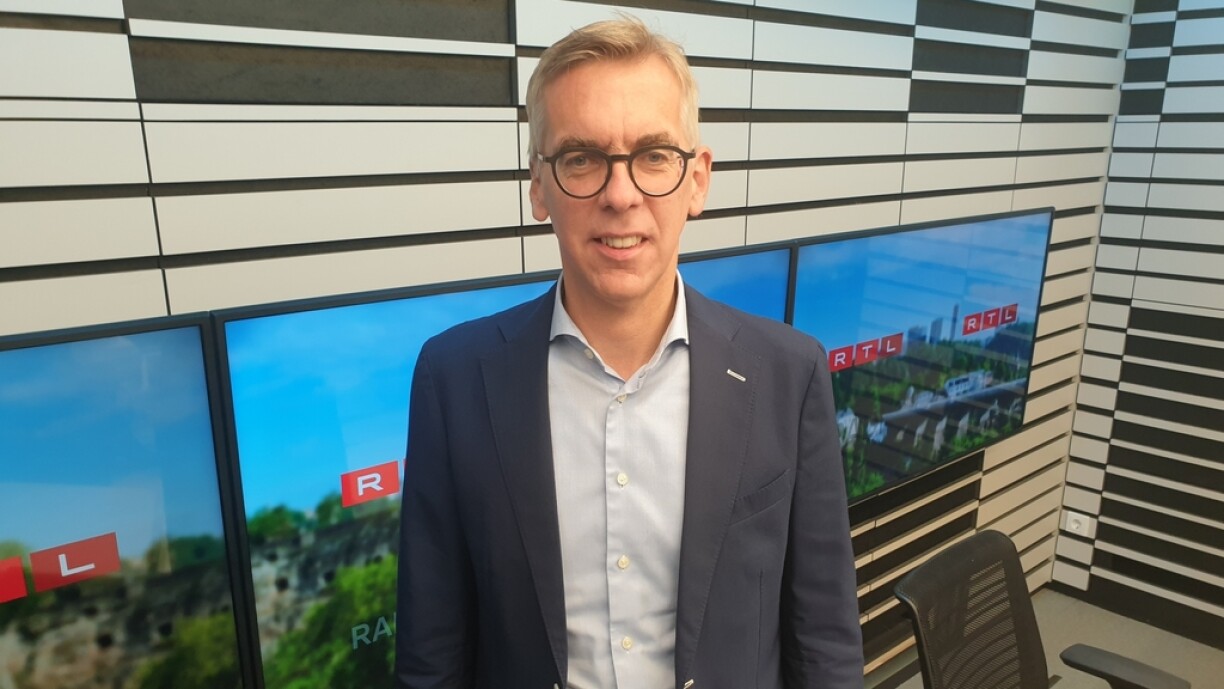
On Saturday, Minister for Home Affairs Léon Gloden appeared on RTL Radio to discuss the ongoing Caritas scandal, the Luxembourg Police, and other domestic issues.
During the interview, Gloden announced that the Bettendorf municipal council’s decision to withdraw from the Nordstad merger would be annulled. At the end of September, the council voted in a secret ballot to halt merger negotiations as part of the Nordstad project.
Gloden explained that under municipal law, councils may deliberate in secret only in specific circumstances, such as personnel appointments. The secret ballot used by the Bettendorf council was not legally valid in this case, and as a result, Gloden will annul the decision. He added that other municipalities involved in the Nordstad project would also need to make new decisions on how to proceed if Bettendorf’s next vote produces the same outcome.
Gloden expressed regret over Bettendorf’s decision, describing the Nordstad merger as a positive initiative. He also emphasised the importance of consulting local residents on mergers of this nature.
On the topic of the Caritas financial scandal, Gloden praised Prime Minister Luc Frieden and the government for finding solutions to issues for which they were not directly responsible. Within two months, the government managed to save many jobs, secure a loan to wind down certain Caritas operations, and explore solutions for its international projects, Gloden said.
However, Gloden expressed surprise at the lack of involvement from the Church, specifically noting that Cardinal Jean-Claude Hollerich had been vocal on other issues, such as the debate around the begging ban. “I had expected the same level of commitment from the Cardinal in the debate about Caritas,” Gloden remarked.
Minister Léon Gloden emphasised the need for improved equipment for emergency and rescue services to respond more effectively during natural disasters. He pointed to the use of pumps and other equipment in countries like Germany as a model for Luxembourg.
Drawing from his experience as the mayor of Grevenmacher, Gloden noted that not every municipality requires large-scale equipment or has the capacity to maintain it. He suggested that it would be more effective to provide the Grand Ducal Fire and Rescue Corps (CGDIS) with the necessary resources.
Gloden also advocated for making police officers “more visible” in their communities. He pointed out that the current dark blue uniforms do not stand out sufficiently, contrasting them with the yellow or orange stripes used in some other countries. In addition to introducing body cameras for officers by June 2025, he proposed testing the use of tasers as an additional tool for police.
Highlighting the importance of understanding police operations on the ground, Gloden revealed that he has participated in night patrols with officers in various districts. He also rode along with traffic police and had the opportunity to operate a speed camera.
This week, a parliamentary committee discussed a bill aimed at enhancing police authority to remove individuals causing public disturbances, such as blocking traffic or disrupting public peace. This authority, known as “Platzverweis” in German and Luxembourgish, in its new form would enable a mayor to mandate that a person stay away from a location for up to 31 days. However, the opposition has criticised this proposal as unconstitutional. Gloden clarified that the new “Platzverweis” would build on the current framework established by the previous government.
The Minister further asserted that mayors are responsible for maintaining “local public order” in their municipalities, referencing decrees from 1789 to 1791. The newly introduced draft bill aims to modernise police regulations and clarify the powers of mayors. Gloden argued that if the opposition challenges these changes, they are essentially disputing the foundational structure of mayoral authority. He believes that there are no constitutional issues with the proposed measures.
In this context, Gloden reiterated that the stricter “Platzverweis” aligns with the coalition agreement, emphasising his commitment to implementing all aspects of that agreement.
Minister Léon Gloden highlighted the need to reassess the subsidies that municipalities receive, citing the example of funding for schools. Currently, the state allocates €5,500 per square metre of gross concrete to municipalities, up to a certain threshold. However, Gloden argued that this funding falls short, as municipalities typically receive only about half the actual cost of building a school.
He shared that three weeks ago, a “small municipality in the east” contacted him regarding plans to construct new school infrastructure that is future-oriented and designed to accommodate greater capacity than their current needs. The estimated cost for this project is €60 million, illustrating the financial strain on municipalities. Gloden emphasised that such circumstances indicate a pressing need to overhaul the existing financing model and explore alternative solutions.